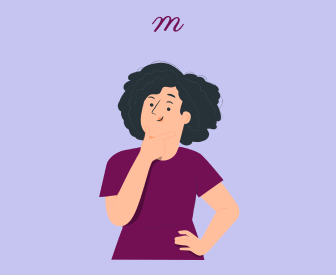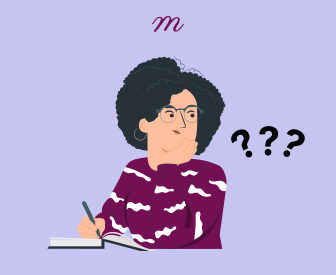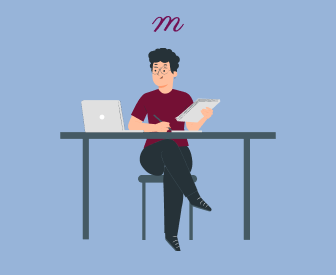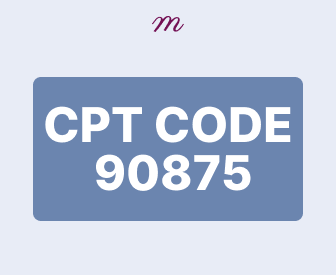Have your progress notes written for you automatically
Understanding the Ins and Outs of CPT Code 90837 for Therapists
Is billing for therapy sessions giving you a headache? Are you curious how to squeeze the most value out of each session? Let us introduce you to the powerful tool that is the 90837 CPT code. This little gem is a game-changer for mental health professionals in private practice, paving the way for accurate billing and maximizing your earnings for your invaluable services.
As a mental health expert running a private practice, mastering the art of correct billing is not just important—it’s vital. The magic of the 90837 code is that it covers individual therapy for diagnostic evaluation and treatment, ensuring you’re rightly compensated for your work. By unlocking appropriate reimbursement through precise coding, you’re setting the stage to provide top-notch care to even more clients. Sure, billing for therapy services can sometimes feel like trying to solve a Rubik’s cube. Still, this guide is tailored to help you comprehend and apply the 90837 code correctly, making the process a breeze and guaranteeing the sustainability of your practice.
What Is the 90837 CPT Code?
CPT Code 90837 is a commonly used billing code for outpatient services provided by mental health practitioners – including psychologists, psychiatrists, counselors, and social workers. This unique code signifies an individual therapy session. These therapy sessions are not restricted to a single type. A variety of therapeutic interventions, such as Cognitive Behavioral Therapy (CBT), Interpersonal Therapy (IPT), Dialectical Behavior Therapy (DBT), mindfulness, and psychodynamic therapy, can be billed under 90837.
When Should I Use 90837?
The code 90837 is not only about session duration but also service type. The 90837 code is appropriate for psychotherapy sessions, which are generally more in-depth. In other words, if you’re providing a more specialized or intensive type of therapy, this is the code you need to use.
Additionally, you may use this code for the following:
- Discussing a client’s history or background in depth
- Managing a crisis or emergency
- Administering psychological testing
- Reviewing treatment plans or progress in detail
Documentation Requirements
To bill 90837, you must have clear documentation showing the medical necessity for the extra time. Be sure to document things like:
- The start and end times of the actual session
- The issues, topics, and goals addressed and discussed during the session
- Specific interventions, tests, or assessments provided
- The client’s reaction or response to the session
- A plan for follow-up or next steps
Following proper documentation guidelines will help ensure your 90837 claims are reimbursed. Billing for sessions not meeting the time requirement is considered fraud, so be conscientious in using this code.
Time Requirements and Service Criteria for Billing 90837
Code 90837 is for 60-minute therapy sessions, defined as 53 minutes or longer. Anything less than 53 minutes would use code 90834 (45-minute session). For 90837, the actual session time must be documented in your notes. Rounding up or down is not allowed.
To use 90837, the service must:
- Focus on diagnoses like depression, anxiety, PTSD, etc. Counseling for everyday stress or life coaching does not qualify.
- Involve the client in actively working to improve functioning and well-being. Sessions should not just be for medication management or socializing.
- Be provided by a properly licensed mental health professional like a psychiatrist, psychologist, counselor, or social worker.
- Follow a treatment plan with specific goals. While each session does not need to be strictly structured, you should be working systematically towards helping the client make progress.
- Be adequately documented in the client’s medical record with details on the topics discussed, interventions used, client’s response, plan for the next session, and time spent. Proper notes are required for compliance and quality care.
Common Mistakes to Avoid With 90837 CPT Code
Navigating the billing process with the 90837 CPT code can feel like a tightrope, especially regarding accurately tracking time. You must document your sessions meticulously, ensuring you’re billing for 60 minutes of therapy, not 50 or 55. Another pitfall to dodge is the trap of outdated records. Be vigilant about updating your notes post-session. This diligence will pay off by providing a crystal-clear description of your services, serving as your best defense in the event of an audit.
As a private therapist, getting your billing right for psychotherapy sessions is not just important—it’s crucial. It is a must to understand the ins and outs of the CPT code 90837, including its criteria, appropriate usage, and common pitfalls. This is the key to maintaining a thriving private practice. While the CPT code 90837 is a popular choice and a significant income source, it’s important to note that some insurance plans, including Medicare, may only approve 1-3 weekly sessions. Tread lightly here—crossing these boundaries can trigger audits and reimbursement fees.
Another common stumble is insufficient time for psychotherapy to qualify for an entire 60-minute session. Remember, at least 53 minutes must be devoted to therapy, excluding wait time, scheduling, or documentation. Specifying the exact type of psychotherapy administered is also crucial, accurately mirroring the appropriate modality in your progress notes. Whether it’s insight-oriented, behavior-modifying, or supportive psychotherapy, all are covered under billing.
Your documentation should paint a vivid picture of interventions, patient responses, and future session plans. While code 90837 applies to individual, family, and couples therapy, don’t be mistaken—it doesn’t carry a higher reimbursement rate than other codes. Location, payer agreements, and credentialing influence these rates.
Maximizing Reimbursement with Proper 90837 Billing
Properly billing the 90837 CPT code is key to maximizing reimbursement for therapy services. The 90837 code is for 60-minute psychotherapy sessions for crisis, initial assessment, or therapy. Billing 90837 requires:
- A 60-minute session length. Don’t round up or down—bill only for the actual duration.
- A mental health diagnosis. The diagnosis must be from the current DSM.
- Medical necessity for the service. Explain why therapy is needed to treat the diagnosis.
- Progress notes that match the billed code. Notes should reflect a 60-minute psychotherapy session.
Why the 90837 Code Matters
90837 is the most commonly billed code for psychotherapy, so maximizing it impacts your revenue significantly. Check with insurance carriers for their specific policies on 90837. Stay updated with any changes to ensure you are billing correctly and receiving the maximum allowable rates.
Double-check that your progress notes match the billed code before submitting claims. Notes lacking details about the psychotherapy provided can lead to rejected or denied claims. Consistency and accuracy are critical to adequately billing 90837 and maximizing reimbursement.
FAQ About the 90837 CPT Code
The 90837 CPT code is used for billing for 45 to 50-minute psychotherapy sessions. As a mental health professional, knowing how to use this code properly is key to getting paid for your services. Here are the basics:
What is the 90837 CPT code?
The 90837 CPT code is used to bill insurance companies for 53 to 60-minute individual psychotherapy sessions. It falls under the “Psychotherapy, 53-60 minutes” category for behavioral health services.
Time requirements
For a session to qualify for 90837, you must spend at least 53 minutes of psychotherapy with the client during the 60-minute visit. The time does not include testing, report writing, coordination of care, or breaks. It must be direct, face-to-face psychotherapy.
Using the 90837 code
You can only bill 90837 for a maximum of one session per day for the same client. The therapy session must focus solely on psychotherapy—not combined with other evaluations or services. You must also document the start and end times of the psychotherapy portion of the session in the patient’s medical record.
Criteria for billing
To bill 90837, you must meet the licensing requirements in your state to provide psychotherapy services. The patient must also have a mental health diagnosis, and you must create and update a treatment plan for them. You should also note the specific therapeutic interventions in each session in the patient’s medical record.
Limitations
While the 90837 CPT code is a valuable billing tool, it has some limitations. Not all insurance companies reimburse at the same rate for this code, and some may not cover it. For instance, Medicare permits up to 36 sessions annually—contact insurance carriers to learn about specific limits. Moreover, billing codes have frequency limits. You can bill no more than four units daily and 22 units within seven days. This is why verifying a client’s insurance coverage is vital before starting therapy. Additionally, this code should not be used for group therapy sessions or sessions less than 53 minutes. Understanding these constraints will help you avoid billing discrepancies and ensure accurate service compensation.
Unlocking the full potential of the 90837 CPT code boils down to three key elements: meticulous record-keeping, accurate time monitoring, and a steadfast dedication to ethical billing. You’ve poured your heart and soul into establishing your practice; receiving the proper compensation for your services is only right. Keep your case notes up-to-date, establish a routine of setting a timer at the start of each session, and ensure you’re billing exclusively for the time dedicated directly to client counseling. Dodge those common pitfalls, and you’ll soon find yourself efficiently maximizing this revenue stream. Remember, the 90837 code is designed to reward you for the profound impact your therapy has, so embrace it, and you’ll find yourself resting easy, secure in the knowledge that your billing practices are above board.
Eliminate billing stress with ease by taking action now and signing up for the Mentalyc email newsletter. With our user-friendly platform, you’ll experience streamlined billing processes, accurate coding, and automated time-saving features. Plus, reduce the risk of errors and ensure smooth operations. Try Mentalyc for free today!
Disclaimer
All examples of mental health documentation are fictional and for informational purposes only.










